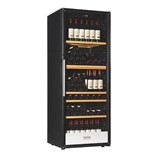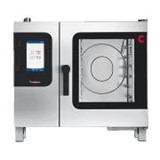The Federal Government has tonight responded favourably in the Budget to industry’s detailed
recovery plan which outlined changes to the Wine Equalisation Tax (WET) rebate and a substantial global investment strategy to restore confidence across the industry.
“We are pleased government has listened and responded to our industry recovery strategy and the
need to provide these additional funds,” Federation President Tony D’Aloisio AM said.
The two peak national organisations supported by all state wine bodies also lobbied government and support the measures announced to:
- Introduce stronger anti-avoidance provisions to remove access to the rebate from contrived
arrangements; - Tighten the eligibility criteria in line with the rebate’s original intent of supporting producers
of branded product who have a stake in the wine industry and removing the rebate for bulk
and unbranded wine.
However Mr D’Aloisio highlighted that just as important for the industry as the injection of funds was the change to the eligibility criteria and this change should come into effect immediately and not wait three years as proposed. The anti-avoidance measures should also come into effect immediately.
“The industry sees removing the claims for bulk and unbranded wine as important drivers to industry’s restructure and we believe these changes need to happen now rather than later to assist
in returning the industry to profitability,” D’Aloisio said.
The Government did not accept that the rebate cap remain unchanged. It has proposed a progressive reduction to $350,000 and then $290,000 from 1 July 2018. This reduction will have an economic impact of removing some $300 million over the forward estimates for businesses with significant investment in regional Australia. With only $50 million back in funds for marketing this reduction needs much greater scrutiny. It is not clear how the proposed reduction in the cap will aid the industry in its recovery after years of declining profits.
“With a more favourable exchange-rate environment and the benefit of Free Trade Agreements with our major trading partners in Asia, the investment of $50 million over the forward estimates togrow markets could have a significant impact on demand,” D’Aloisio said.
“However while we are pleased government has listened and responded to industry’s recovery
plan and the need to provide much-needed additional funds for marketing, promotion and regional
development, significant questions remain over reducing the rebate cap and the delay in removing
eligibility for bulk and unbranded wine,” he said.
Wine Grape Growers Australia Chair Joanna Andrew welcomed government’s support for the grape and wine sector but echoed D’Aloisio’s concerns.
“Doing nothing was not an option and government has begun a reform process that we hope will translate into better returns for growers and across the supply chain,” Ms Andrew said.
The Budget has not removed New Zealand producer eligibility from the separate WET rebate. While the announced changes will also apply to New Zealand claimants, this is another area the Australian industry will continue to pursue with government.
Both organisations said they would be consulting their members and State and regional associations on these proposals and continue to engage with the government.
The Federation’s plans and submissions to government on the reforms covered by this announcement have been supported by Wine Grape Growers Australia and all state wine organisations. The full Budget submission is available here.
The WFA position on wine industry taxation is as follows:
- No overall increase in the total tax revenue from the wine sector;
- Keep the WET rebate ceiling at $500,000 but make the following reforms to ensure it continues to support wine businesses and regional communities over the longer term:
- Stop the rebate going to unintended recipients and shut down the schemes;
- Phase out rebate eligibility for bulk and unbranded wine over four years;
- Introduce a level playing field for all rebate claimants and abolish the unfair separate New Zealand producers’ rebate;
- Introduce transitional measures including:- Industry assistance for those impacted by the removal of rebate eligibility on
bulk and unbranded wine; - Allowing the second rebate on a merger of two entitled businesses to remain
with the new entity, phased out at 25% per year;
- Return $43.4m of savings from these measures to the industry for the international
promotion of our wine;
- Industry assistance for those impacted by the removal of rebate eligibility on
- No use of tax or artificial minimum pricing measures as a lever for health reform, as nonprice
measures better target hazardous consumption; - Maintenance of the differential tax rates for wine, beer and spirits (i.e. no equivalency) to
reflect the significant differences between wine and other forms of alcohol; - Wine to be taxed within the existing WET legislative framework and not an excise-based
approach as is the case for beer and spirits.







